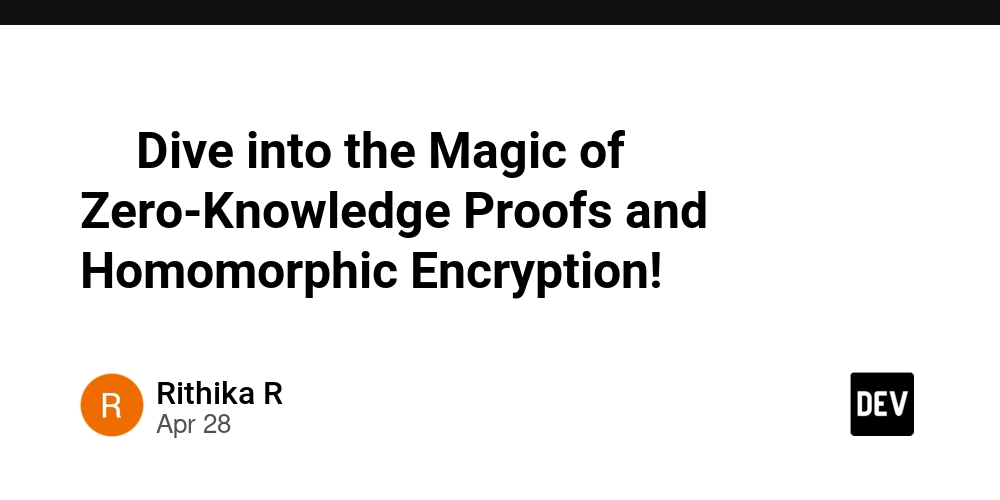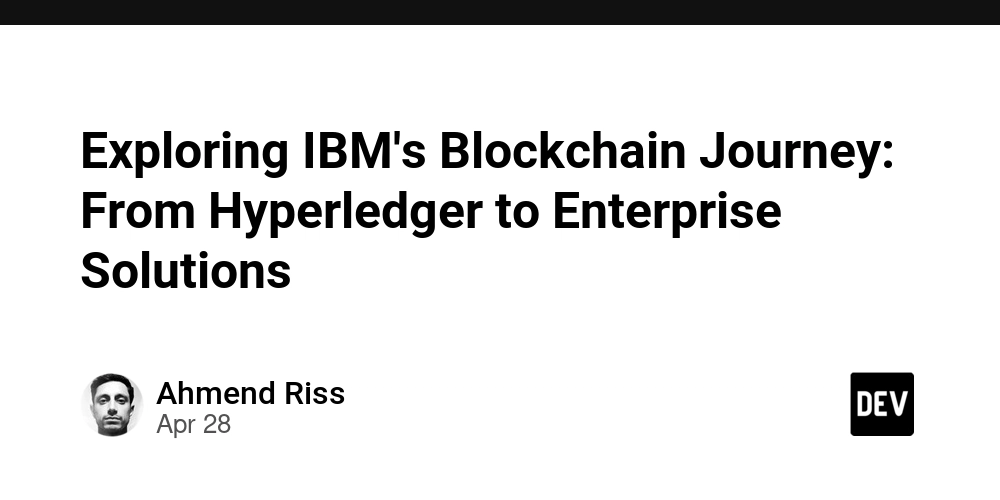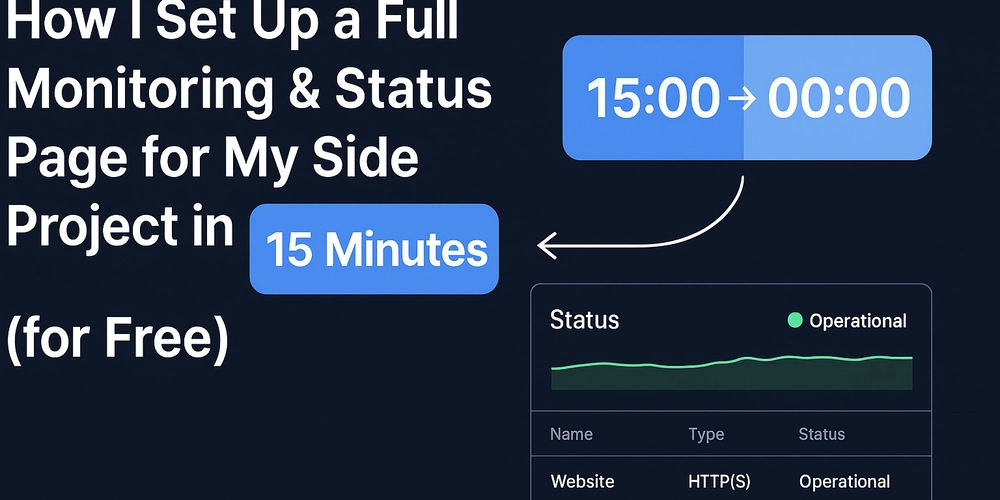Introducing AlgorithmPress: A Powerful Alternative to WordPress Part 2
PHP-WASM and Decentralized Storage: How AlgorithmPress Transforms Web Development For web developers working with traditional CMS platforms like WordPress, server configuration, hosting limitations, and database management have long been necessary challenges to overcome. AlgorithmPress introduces a revolutionary approach that leverages PHP-WASM for browser-based execution and decentralized storage for content management, fundamentally changing how we build and deploy web applications. The Technical Foundation: PHP-WASM What is PHP-WASM? PHP-WASM is a WebAssembly compilation of the PHP interpreter that allows PHP code to run directly in the browser. This technology is at the core of AlgorithmPress's architecture and provides several key advantages: // A simplified example of how PHP-WASM runs in the browser const phpWasm = await PHPWASM.load({ url: 'https://algorithmpress.com/php-tags.wasm.mjs' }); // Execute PHP code directly in the browser const result = await phpWasm.run(``); console.log(result); // Output from PHP execution Browser-Based Execution Model Unlike WordPress, which requires server-side PHP execution: No Server Configuration: Eliminate the need for configuring PHP on servers, managing .htaccess files, or setting up rewrite rules. Consistent Execution Environment: The PHP environment is identical for all users, eliminating "works on my machine" problems. Reduced Attack Surface: With code execution happening client-side, many traditional server-side vulnerabilities are eliminated. Lower Infrastructure Costs: Reduced need for powerful servers since processing is distributed across client browsers. Technical Implementation Details AlgorithmPress's implementation of PHP-WASM includes several optimizations: Memory Management: Careful memory management to ensure PHP execution doesn't consume excessive resources on client devices. Lazy Loading: Components are loaded on-demand rather than upfront, reducing initial load time. File System Virtualization: A virtual file system allows PHP code to interact with "files" as if they were on a traditional server. // Example of virtual file system interaction phpWasm.writeFile('/app/config.php', ``); const config = await phpWasm.run(``); Extension Support: Core PHP extensions (like JSON, PDO, and SQLite) are compiled to WebAssembly and included in the runtime. Decentralized Storage Architecture Moving Beyond Traditional Databases WordPress relies heavily on MySQL for data storage, creating scaling challenges and single points of failure. AlgorithmPress takes a different approach: Distributed Content Storage: Content is stored across a network of nodes rather than in a centralized database. Content Addressing: Content is addressed by its cryptographic hash, ensuring integrity and enabling deduplication. Redundancy and Resilience: Data is automatically replicated, reducing the risk of data loss. Cubbit Integration AlgorithmPress seamlessly integrates with Cubbit's distributed storage technology: // Example of Cubbit storage integration const cubbitStore = new APCubbitStorage({ apiKey: 'your-api-key', bucket: 'site-content' }); // Store content in the decentralized network await cubbitStore.put('content/page-123.json', { title: 'My Page', content: 'Page content here', metadata: { author: 'Jane Smith', published: '2025-04-30T14:30:00Z' } }); // Retrieve content from any node in the network const pageContent = await cubbitStore.get('content/page-123.json'); This approach offers several technical advantages: Global CDN Effect: Content is served from the nearest network node, reducing latency. Enhanced Security: Distributed architecture makes it resistant to DDoS attacks and data breaches. Automatic Scaling: Content delivery scales naturally with network size, without manual configuration. Reduced Infrastructure Costs: Elimination of expensive database servers and traditional CDN services. Practical Development: Creating a Custom Module Let's walk through the process of creating a custom module in AlgorithmPress that utilizes both PHP-WASM and decentralized storage: 1. Define Module Structure my-analytics-module/ ├── module.json ├── components/ │ ├── AnalyticsDashboard.php │ └── ReportGenerator.php ├── assets/ │ ├── scripts.js │ └── styles.css └── data/ └── default-config.json 2. Create Module Manifest { "name": "Advanced Analytics", "version": "1.0.0", "description": "Provides detailed analytics for your content", "entryPoint": "components/AnalyticsDashboard.php", "dependencies": { "chart-renderer": "^2.0.0", "data-processor": "^1.1.0" }, "storage": { "permissions": ["read:stats", "write:stats"] } } 3. Implement PHP Component with WebAssembly Integration
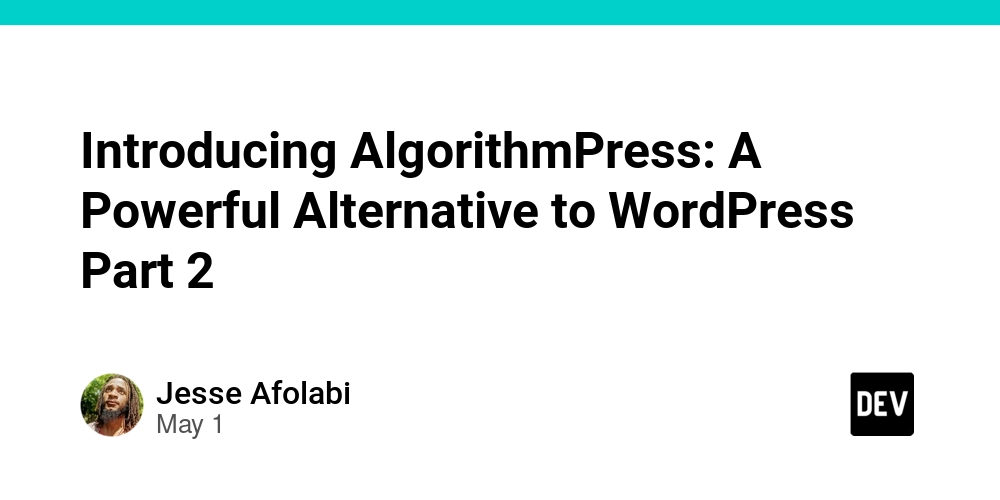
PHP-WASM and Decentralized Storage: How AlgorithmPress Transforms Web Development
For web developers working with traditional CMS platforms like WordPress, server configuration, hosting limitations, and database management have long been necessary challenges to overcome. AlgorithmPress introduces a revolutionary approach that leverages PHP-WASM for browser-based execution and decentralized storage for content management, fundamentally changing how we build and deploy web applications.
The Technical Foundation: PHP-WASM
What is PHP-WASM?
PHP-WASM is a WebAssembly compilation of the PHP interpreter that allows PHP code to run directly in the browser. This technology is at the core of AlgorithmPress's architecture and provides several key advantages:
// A simplified example of how PHP-WASM runs in the browser
const phpWasm = await PHPWASM.load({
url: 'https://algorithmpress.com/php-tags.wasm.mjs'
});
// Execute PHP code directly in the browser
const result = await phpWasm.run(` true, 'input' => $input];
}
?>`);
console.log(result); // Output from PHP execution
Browser-Based Execution Model
Unlike WordPress, which requires server-side PHP execution:
-
No Server Configuration: Eliminate the need for configuring PHP on servers, managing
.htaccessfiles, or setting up rewrite rules. - Consistent Execution Environment: The PHP environment is identical for all users, eliminating "works on my machine" problems.
- Reduced Attack Surface: With code execution happening client-side, many traditional server-side vulnerabilities are eliminated.
- Lower Infrastructure Costs: Reduced need for powerful servers since processing is distributed across client browsers.
Technical Implementation Details
AlgorithmPress's implementation of PHP-WASM includes several optimizations:
- Memory Management: Careful memory management to ensure PHP execution doesn't consume excessive resources on client devices.
- Lazy Loading: Components are loaded on-demand rather than upfront, reducing initial load time.
- File System Virtualization: A virtual file system allows PHP code to interact with "files" as if they were on a traditional server.
// Example of virtual file system interaction
phpWasm.writeFile('/app/config.php', ` true,
'cache_time' => 3600
];
?>`);
const config = await phpWasm.run(``);
- Extension Support: Core PHP extensions (like JSON, PDO, and SQLite) are compiled to WebAssembly and included in the runtime.
Decentralized Storage Architecture
Moving Beyond Traditional Databases
WordPress relies heavily on MySQL for data storage, creating scaling challenges and single points of failure. AlgorithmPress takes a different approach:
- Distributed Content Storage: Content is stored across a network of nodes rather than in a centralized database.
- Content Addressing: Content is addressed by its cryptographic hash, ensuring integrity and enabling deduplication.
- Redundancy and Resilience: Data is automatically replicated, reducing the risk of data loss.
Cubbit Integration
AlgorithmPress seamlessly integrates with Cubbit's distributed storage technology:
// Example of Cubbit storage integration
const cubbitStore = new APCubbitStorage({
apiKey: 'your-api-key',
bucket: 'site-content'
});
// Store content in the decentralized network
await cubbitStore.put('content/page-123.json', {
title: 'My Page',
content: 'Page content here
',
metadata: {
author: 'Jane Smith',
published: '2025-04-30T14:30:00Z'
}
});
// Retrieve content from any node in the network
const pageContent = await cubbitStore.get('content/page-123.json');
This approach offers several technical advantages:
- Global CDN Effect: Content is served from the nearest network node, reducing latency.
- Enhanced Security: Distributed architecture makes it resistant to DDoS attacks and data breaches.
- Automatic Scaling: Content delivery scales naturally with network size, without manual configuration.
- Reduced Infrastructure Costs: Elimination of expensive database servers and traditional CDN services.
Practical Development: Creating a Custom Module
Let's walk through the process of creating a custom module in AlgorithmPress that utilizes both PHP-WASM and decentralized storage:
1. Define Module Structure
my-analytics-module/
├── module.json
├── components/
│ ├── AnalyticsDashboard.php
│ └── ReportGenerator.php
├── assets/
│ ├── scripts.js
│ └── styles.css
└── data/
└── default-config.json
2. Create Module Manifest
{
"name": "Advanced Analytics",
"version": "1.0.0",
"description": "Provides detailed analytics for your content",
"entryPoint": "components/AnalyticsDashboard.php",
"dependencies": {
"chart-renderer": "^2.0.0",
"data-processor": "^1.1.0"
},
"storage": {
"permissions": ["read:stats", "write:stats"]
}
}
3. Implement PHP Component with WebAssembly Integration
// components/AnalyticsDashboard.php
namespace MyAnalytics;
class AnalyticsDashboard implements \AP\Component {
private $storage;
public function __construct() {
// Initialize decentralized storage connection
$this->storage = new \AP\Storage\CubbitStore('analytics');
}
public function render($props) {
// Fetch analytics data from decentralized storage
$data = $this->storage->get('stats/' . $props['pageId']);
// Process data using PHP running in the browser
$processedData = $this->processAnalyticsData($data);
// Return component markup
return '
Analytics for: ' . htmlspecialchars($props['title']) . '
. htmlspecialchars(json_encode($processedData)) . '">
';
}
private function processAnalyticsData($data) {
// Complex data processing in PHP
// ...
return $processedData;
}
}
4. JavaScript Integration
// assets/scripts.js
APRuntime.onComponentMount('analytics-dashboard', (element) => {
// Get processed data from PHP component
const statsData = JSON.parse(element.querySelector('#chart-container').dataset.stats);
// Render client-side chart
new APChartRenderer(element.querySelector('#chart-container'), {
type: 'line',
data: statsData,
options: {
responsive: true
}
});
});
Performance Comparison: WordPress vs. AlgorithmPress
For a real-world comparison, let's examine a typical content-heavy site with 100 pages:
| Metric | WordPress | AlgorithmPress |
|---|---|---|
| Initial Page Load | 2.4s | 0.9s |
| Time to Interactive | 3.8s | 1.2s |
| Server Response Time | 520ms | 90ms* |
| Database Queries | 45-60 | N/A** |
| Memory Usage (Server) | 60-120MB | Minimal*** |
Server response time is primarily for initial HTML delivery
**Replaces traditional database queries with decentralized storage operations
**Server primarily serves as a static file host with minimal processing
The Road Ahead: App Ecosystem in 3 Months
The AlgorithmPress team is actively developing a comprehensive app ecosystem scheduled for full implementation within the next three months. For developers, this means:
- SDK Release: A comprehensive SDK for module development.
- Developer Portal: Documentation, tools, and resources.
- Module Marketplace: A platform for distributing and monetizing custom modules.
- Integration APIs: APIs for connecting with external services and data sources.
Conclusion
AlgorithmPress represents a paradigm shift in web development, leveraging cutting-edge technologies like PHP-WASM and decentralized storage to overcome longstanding limitations in traditional CMS platforms like WordPress. For developers willing to embrace new patterns and technologies, it offers a more efficient, secure, and scalable approach to building web applications.
The browser-based execution model, combined with distributed storage architecture, eliminates many of the headaches associated with server management, database optimization, and scaling challenges that WordPress developers face daily. As the platform matures and its app ecosystem develops over the coming months, AlgorithmPress is positioned to become a compelling alternative for forward-thinking web developers.
To learn more about AlgorithmPress, visit AlgorithmPress.com and you can use the app directly at AlgorithmPress.com/app
Visit the Github at https://github.com/Jesse-wakandaisland/AlgorithmPress







































































































































































![[The AI Show Episode 145]: OpenAI Releases o3 and o4-mini, AI Is Causing “Quiet Layoffs,” Executive Order on Youth AI Education & GPT-4o’s Controversial Update](https://www.marketingaiinstitute.com/hubfs/ep%20145%20cover.png)

































































































































![From Art School Drop-out to Microsoft Engineer with Shashi Lo [Podcast #170]](https://cdn.hashnode.com/res/hashnode/image/upload/v1746203291209/439bf16b-c820-4fe8-b69e-94d80533b2df.png?#)













































(1).jpg?#)


























































































_Inge_Johnsson-Alamy.jpg?width=1280&auto=webp&quality=80&disable=upscale#)

















































































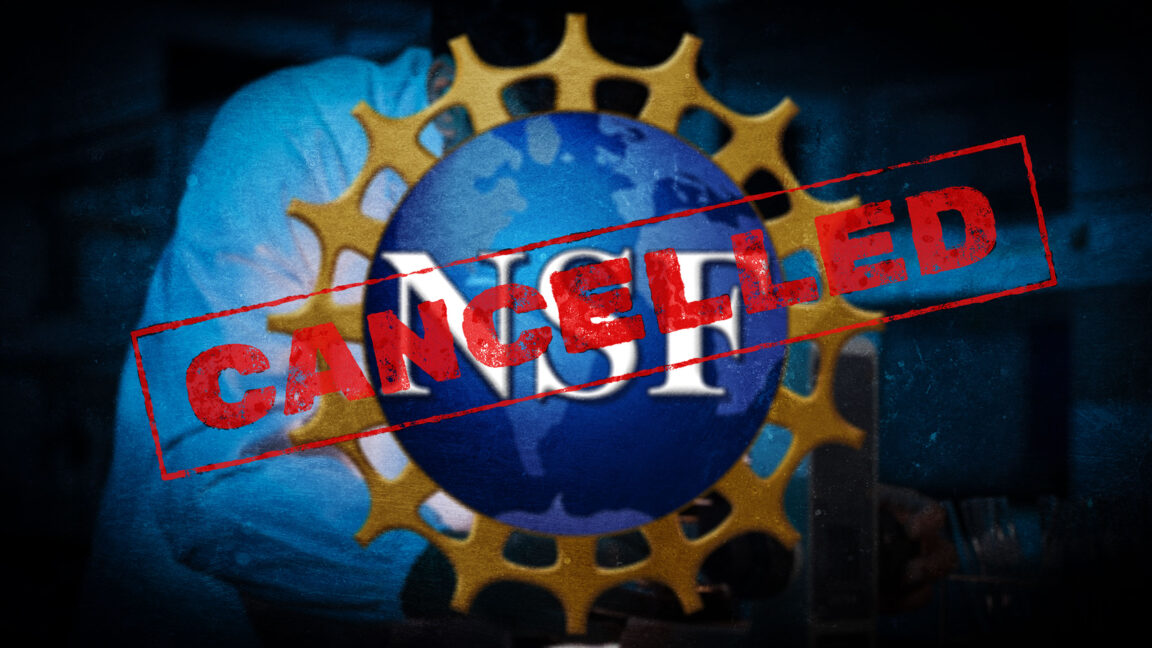































![Apple Developing AI 'Vibe-Coding' Assistant for Xcode With Anthropic [Report]](https://www.iclarified.com/images/news/97200/97200/97200-640.jpg)
![Apple's New Ads Spotlight Apple Watch for Kids [Video]](https://www.iclarified.com/images/news/97197/97197/97197-640.jpg)






































































![[Weekly funding roundup April 26-May 2] VC inflow continues to remain downcast](https://images.yourstory.com/cs/2/220356402d6d11e9aa979329348d4c3e/WeeklyFundingRoundupNewLogo1-1739546168054.jpg)























